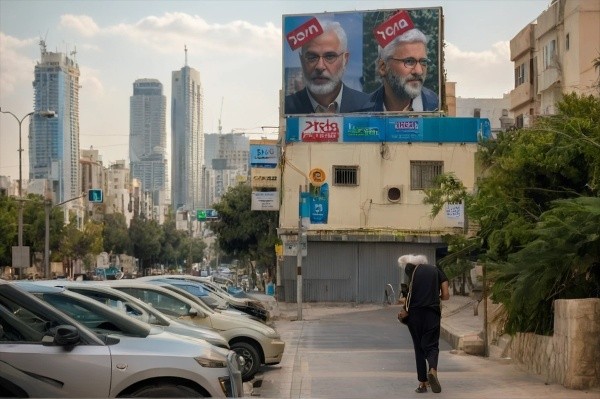Iran’s Plan to Strike Back Against the U.S.
Iran’s Military Preparations Following U.S. Attacks
Loading...

As people brace for an attack, there is anxiety but also resignation, Israel-based experts say.
The recent assassinations of Hamas's political chief and a Hezbollah commander have heightened anxiety and apprehension in Israel as the country braces for potential retaliatory actions. The evolving situation has underscored concerns about the risk of wider conflict and the impact on regional stability.
Assassinations and Anticipated Responses
The killings of Ismail Haniyeh of Hamas and Hezbollah commander Fuad Shukr have raised fears of potential retaliation and heightened tensions in the region. Israel has not officially commented on Haniyeh's assassination but has claimed responsibility for Shukr's killing. The anticipation of responses from Iran and Hezbollah has prompted Israel to be on high alert and seek international support to deflect potential attacks.
Iranian and Hezbollah Responses
Iranian Supreme Leader Ali Khamenei has vowed "harsh punishment" for Israel in retaliation for Haniyeh's assassination, while Hezbollah's leader Hassan Nasrallah has stated that a response is "inevitable." The statements from Iranian and Hezbollah leaders have raised concerns about the potential for a larger-scale conflict and the readiness of both entities to retaliate.
Public Sentiment and Readiness
The public mood in Israel reflects a mix of anxiety and resignation, with individuals expressing concerns about safety and the potential for a larger war. While there is a general sense of anxiety and tension, there is also a level of resignation and acknowledgment of the potential consequences of the recent events. The assassinations have restored some level of public confidence in Israeli Prime Minister Benjamin Netanyahu and the military, following previous intelligence failures.
International Reactions and Diplomatic Efforts
The evolving situation has drawn attention from international actors, with concerns about the potential repercussions and the need to prevent further escalation. The delicate balance of power and the potential for wider conflict have prompted discussions about the stability and security of the region.
Economic and Market Impact
The news of potential retaliatory actions and the heightened tensions have had initial impacts on the markets, with fluctuations in the stock market and the national currency. The potential for wider conflict and the economic implications have raised uncertainties about the future stability of the region.
Conclusion
The recent assassinations and the anticipated responses from Iran and Hezbollah have heightened anxiety and apprehension in Israel, raising concerns about the potential for wider conflict and the impact on regional stability. The evolving dynamics in the Middle East and the potential for broader repercussions have prompted discussions about the need to prevent further escalation and maintain stability in the region.
Editor
Iran’s Military Preparations Following U.S. Attacks
Troops remain in five strategic locations, raising fears of renewed tensions and long-term occupation.
Opposition forces have taken control of the capital after a significant offensive. Here is how it unravelled.
